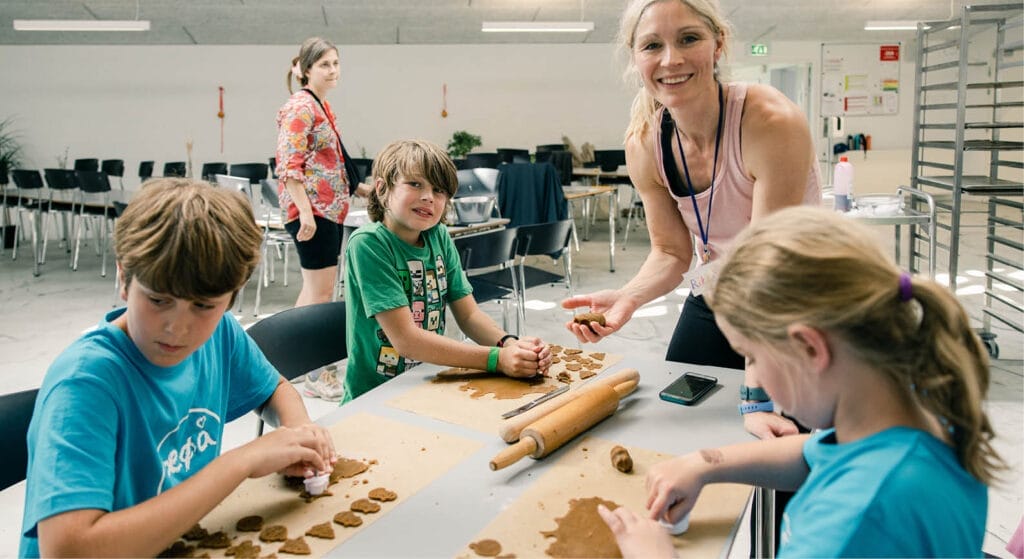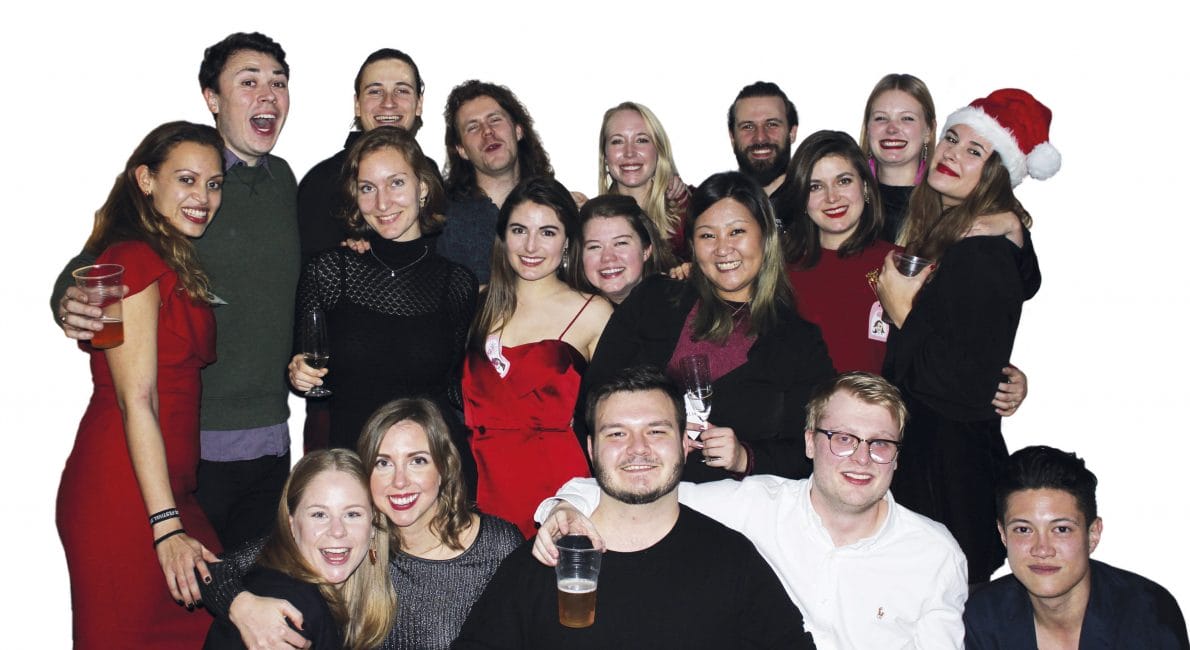By Theresa Nguyen, Freelance Journalist. The article was originally published in DANES 2, 2019.
In 2008, Céline Raffel turned 18. This meant that she had become an adult and, as such, she could no longer participate in the yearly Summer School organised by Danes Worldwide. Having spent seven consecutive summers with the programme, the final farewell triggered a plethora of emotions.
“I attended the Danish Summer School seven times until I wasn’t allowed anymore, until I became too old so to speak, because once you’ve turned 18, you’re not allowed to be in the program, and that was downright tough as 2008 was the final year for many of us. We cried so much – even the boys cried,” Céline Raffel recalls 11 years later.
Since 1981, the Danish Summer School has welcomed thousands and thousands of Danish children who are living abroad with their families. The summer programme is a compact learning opportunity for international youths who wish to improve their Danish language skills and acquire knowledge about cultural practices and traditions in Denmark. The intensity of the 16-day programme provides a solid platform for building friendships according to Céline Raffel.
“The Summer School gave us something special. There’s a different kind of bond when you get to experience Denmark with a bunch of kids who are in the same boat as you, being Danes who live abroad, but who are still closely connected to Denmark. Spending every summer together was just fantastic, and that’s why we promised each other that we’d stay in contact forever.”
Sharing blood from East to West
The original group of five kids who met in 2002 has expanded to include more than 20 people today. Some only attended the Summer School once, while others attended on and off, and one member was invited into the group after their final summer together because his best friend was one of the originals.
“Even though many of us in the group haven’t been there from the beginning, every member is valued equally. Once you’ve been to the Summer School, you’re one of us. In a way, it’s like we’re sharing blood,” Céline Raffel explains.
Back in the early 2000s, the group kept in contact through email. After the rise of social media, the members created a Facebook group, which is still their primary platform for arranging events or sharing daily updates with each other.
“With the help of the internet, we’ve managed to stay in contact rather easily. Most of us have returned to Denmark now – to Copenhagen primarily. I moved here in 2010, but before then we were spread all over the world from Luxembourg to Cyprus, Japan, China, France, the UK and the US.”
Danes communicating in English
Although everybody in the group today speaks Danish – at varied levels of proficiency – their shared language of communication has remained English.
“That’s how we built the group, because many couldn’t speak Danish back then. Two of my closest friends and I all speak Danish fluently, but when we’re together we still communicate in English. That’s how it has always been, so it would feel strange to suddenly switch to Danish,” says Céline Raffel.
Developing Danish proficiency is something that all members of the group have worked tirelessly to achieve. Still, they have all battled with the challenge of not speaking like native Danes, particularly during their first years of living in Denmark.
“None of us speaks perfect Danish. In the beginning, our vocabulary was limited, we weren’t familiar with the Danish sayings and we were shy about speaking the language. This gave us a feeling of being included [among native Danes], yet not entirely because we grew up abroad.”
Dealing with culture shocks together.
Adding to the language barrier, moving to Denmark as an adult is bound to cause culture shocks no matter how Danish your family managed to stay while living overseas, Céline Raffel says.
“Personally, I was born and grew up in the south of France, in Nice, where the culture is completely different. When I arrived in Copenhagen at the age of 19, it surprised me how quickly everybody matured here, how quickly Danes become adults. Most 19-year-olds already knew how to cook while I had no idea whatsoever. The girls also seemed a lot more experienced with boys, for example, and this was a complete culture shock to me. It was the same with the Danish sense of humor – because people are so sarcastic here. Jokes in our group are delivered in English, so we’re used to a different kind of humor.”
With mixed international backgrounds, the group finds solace in each other’s company, as making new Danish friends has proven difficult.
“Danes tend to stick to their old groups of friends from school or whomever they may have grown up with. I was under the impression that nobody needed a new friend like me, or at least there was no interest in building up new friendships,” says Céline, who has lived in Copenhagen for nine years.

The world’s best summer with Danish language and culture
Language school, Danish culture classes, fun and creative activities – and the place where lifelong friendships begin.
Join our summer schools for children and young people aged 10-17 or the Family Summer School for parents and grandparents with children aged 6-13.
Summer School baby
The group of summer school alumni now meet up several times a year. Close friends within the group communicate on an almost daily basis, which makes settling in a lot easier, particularly for those whose families still live abroad.
“Having each other in our everyday lives makes life in Denmark so much better and less frustrating, as we’ve all been on the same journey moving here. Having a network means a lot, especially when you’re figuring out new systems in a foreign society or looking for work. Coming here, many of us thought that our multiple languages would create opportunities, but we’ve come to realise that a lack of network is more challenging than we anticipated.”
Thanks to the combination of social support and the being part of a group of people who understand what it means to identify as a Dane despite having a different international background, every member of the group now resides in Denmark, except for one person who discovered that he felt more Japanese than Danish.
“None of us have turned 30 yet – this is also something we’ll experience together, but we’re of an age where a lot is happening. Some members of the group also started dating and are now couples. We even have a Summer School baby,” says Céline Raffel with a smile.
Different kinds of Danes
Although Denmark is now home to the French-born Dane, this was not always the case.
“For a long time, Nice was still home to me, but after a couple of years of living in Copenhagen, this place became my home,” the 28-year-old says.
“I wanted this so much – I wanted to make my move to Denmark successful because I wanted to belong here. I’ve always felt more Danish than French, more connected to the Danish mentality, and I think that I’m a better match with the Danish way of living.”
As for the entire group, the common bond holding them together, despite being individuals nurtured in diverse, far-away environments, is their Danish roots, which took form and began to develop during the Summer Schools.
“We all feel a connection to the Danish culture, like every time we visit Tivoli or hear Kim Larsen, we’ll sing along and be reminded of the Summer School, which created the foundation for us to define ourselves as Danes. These common experiences mean everything to us as a group, and today, as we grow older, we’re comfortable in our own, individual ways of being a Dane – because there are many ways of being Danish,” says Céline.



